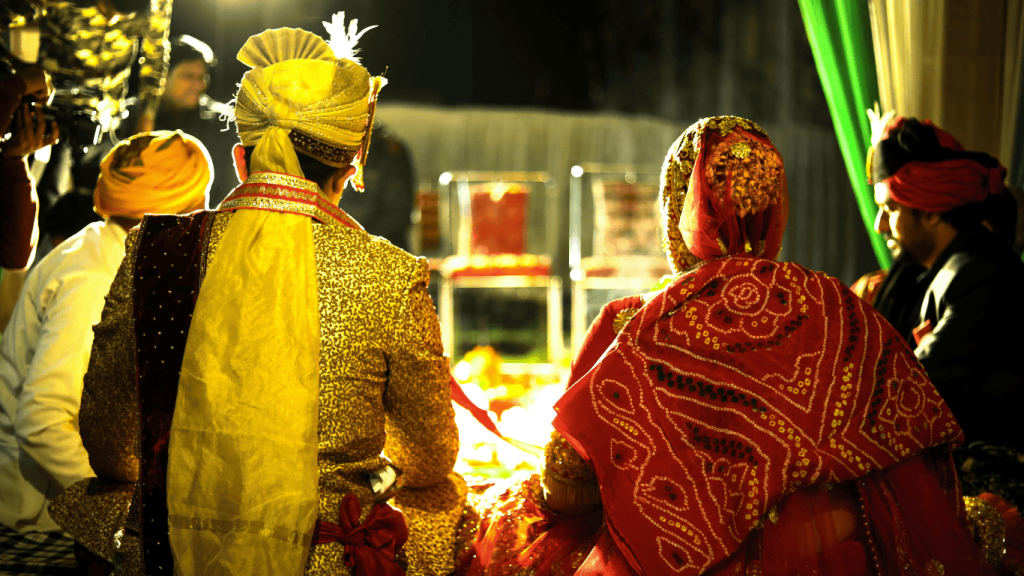💍 Punjabi Matrimony: Culture, Communities & Castes Explained

Punjabi culture is one of the most vibrant and cherished in India — known for its warmth, hospitality, music, food, and of course, grand weddings. When it comes to matrimonial matchmaking, many Punjabi families still consider cultural background, caste, and community while also balancing modern values like education, career, and compatibility.
This guide will help you understand the key Punjabi communities and castes that often play a role in marriage preferences.
🌾 Who Are Punjabis?
Punjabis are an ethnolinguistic group originating from the Punjab region, which is now divided between India and Pakistan. In India, they are mostly found in the state of Punjab, but large Punjabi communities also thrive in Delhi, Haryana, Himachal Pradesh, and abroad in countries like Canada, the UK, and the US.
Punjabis are broadly classified by religion into:
Sikh Punjabis
Hindu Punjabis
(A smaller number also follow Christianity or Islam)
🔍 Major Punjabi Castes & Communities
Here are the most prominent Punjabi castes, especially relevant in matrimonial settings:
1. Jatt / Jatt Sikh
Religion: Primarily Sikh
Traditional Role: Landowners and farmers
Traits: Proud, community-oriented, strongly rooted in Punjab’s rural identity
Popular Surnames: Sandhu, Dhillon, Sidhu, Gill, Aulakh
Matrimony Note: Matches are often sought within the Jatt community.
2. Khatri & Arora
Religion: Hindu & Sikh
Traditional Role: Business class, traders, administrators
Traits: Educated, professional, urban dwellers
Popular Surnames: Mehra, Kapoor, Khanna, Malhotra, Arora
Matrimony Note: Khatris and Aroras often intermarry, and are open to modern, urban matches.
3. Ramgarhia
Religion: Sikh
Traditional Role: Skilled artisans, now found in all professions
Traits: Technically skilled, progressive mindset
Popular Surnames: Matharu, Dhanjal, Chana, Lall
Matrimony Note: Families prefer marrying within the Ramgarhia community, though views are evolving.
4. Brahmin Punjabi
Religion: Hindu
Traditional Role: Priests and scholars
Traits: Spiritually inclined, highly educated
Popular Surnames: Sharma, Bharadwaj, Trivedi
Matrimony Note: Marriages often within Brahmin circles, but education and values are highly prioritized.
5. Baniya (Punjabi Vaishya)
Religion: Hindu
Traditional Role: Business and trade
Traits: Financially wise, community-focused
Popular Surnames: Gupta, Jain, Bansal, Mittal, Goel
Matrimony Note: Business family alliances are common; horoscopes may be considered.
6. Scheduled Castes (SC) & Other Backward Classes (OBC)
Examples: Mazhabi, Chamar, Valmiki
Religion: Sikh and Hindu
Traits: Resilient, socially progressive, diverse professionals
Popular Surnames: Bhagat, Ravidass, Suman, Dass
Matrimony Note: Rising social mobility has made inter-caste marriages more common, though community-specific matches are still preferred by many.
7. Lubana
Religion: Mostly Sikh
Traditional Role: Traders and transporters
Traits: Entrepreneurial and family-oriented
Popular Surnames: Lubana, Badhan
Matrimony Note: Prefer alliances within the community, but views are becoming modernized.
.
💡 Modern Matchmaking Trends
Profession & Education: Today, many Punjabi families give high importance to qualifications, jobs, and overseas exposure.
Caste Flexibility: While caste matters for some, younger generations are increasingly open to inter-caste and even inter-religion marriages.
NRI Preferences: Families settled abroad often prioritize cultural compatibility and lifestyle more than traditional caste markers.
🥁 Punjabi Weddings: A Cultural Celebration
Punjabi weddings, regardless of caste, are full of joy, dance, food, and vibrant rituals like:
Roka & Shagun (Engagement ceremonies)
Mehndi & Sangeet (Pre-wedding functions)
Anand Karaj (Sikh wedding) / Hindu Vedic rituals
✅ Final Thoughts
Punjabi matrimony is a beautiful blend of tradition and modernity. While caste and community continue to play a role in many matches, evolving perspectives are creating space for love, education, and shared values to take center stage.
Whether you’re looking for a Jatt partner from Punjab or a Khatri professional settled abroad, understanding the cultural roots can help you find a truly compatible match.